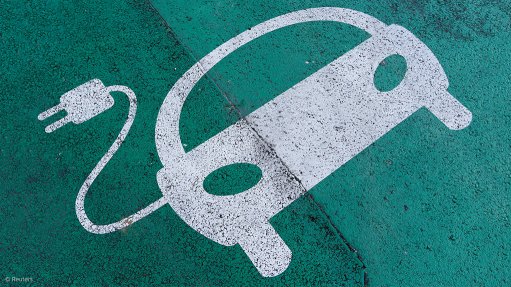
Energy management and automation company Schneider Electric has launched a local electric vehicle (EV) charging solution, to cater for African countries’ transition away from fossil fuel-powered cars.
The solution, called EVLink, is part of Schneider’s EcoStructure eMobility offering and was developed in response to the lack of supporting infrastructure for EV charging on the continent.
EVLink is an end-to-end connected solution that is easy to install, maintains building power reliability and provides a convenient experience for EV drivers.
Schneider Africa home and distribution business unit leader Karim Yasser lists South Africa, Kenya, Ethiopia, Ghana, Nigeria and Egypt as the main countries advancing EV adoption.
“The solution addresses the requirements of both private owners and fleet owners or corporates that are switching to electric-powered cars,” Yasser states.
EVLink Home caters for individual EV owners who are looking for a smart charging solution that can be installed at their residential premises. These chargers are designed for slow charging, with an alternating current (ac) range of up to 11 kW.
Typically, a full charge can be completed in six to eight hours and the charger is available in two variants – traditional and smart. The smart version can be monitored and controlled with a smartphone.
EV Link Pro is designed for commercial use and can be installed at sites such as office buildings, public parking facilities and shopping malls. This is a faster charging solution with a higher capacity – an ac range of up to 22 kW – to ensure a full charge can be completed in three to four hours.
With a radio frequency identification card, building or facilities managers can authenticate and provide or deny access to users while tracking their energy consumption.
“The EV Link Pro ac solution is designed to be flexible, depending on the desired application and can be adapted to the design of a particular parking area or charging slot. It is scalable, modular and customisable, providing advanced connectivity and interoperability,” Yasser explains.
He notes that Schneider will also launch the EV Link Pro direct current (dc) solution later this year, which is a fast charger with a dc range of up to 180 kW. This offering will be suitable for use in transit, such as at charging stations, and will be able to provide a full charge in 30 minutes to an hour.
The EV Link Pro dc is also suited to electric mass transit buses that require higher power demand for charging.
Schneider’s EVLink solution runs off its EcoStruxure EV Charging Expert, which is an effective load management system that prioritises building load per time to prevent tripping or blackout, especially during peak energy demand.
This software platform enables the dynamic distribution of available power among charging stations, peak/off-peak hours EV charging management and monitoring and control of EV charging stations based on an open protocol.
With this solution, the energy allocated is fully optimised, resulting in a low and optimised low voltage panel upgrade cost.
“As a global leader in energy management, we offer comprehensive e-mobility solutions that go beyond simply providing EV charging infrastructure. We connect the entire electric mobility ecosystem to create a seamless and convenient charging experience for homes, buildings and fleets,” Yasser notes.
Beyond the chargers, the EVLink solution includes energy sourcing that uses microgrid solutions, software, and electrical protection with smart low voltage and medium voltage.
Schneider’s goal is to minimise downtime and prioritise the use of renewable energy to move towards a net-zero future.